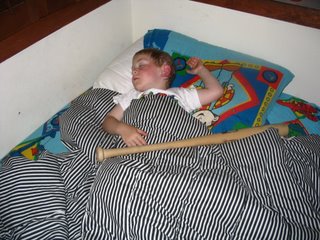About 2 years ago, I read the
book that inspired the movie
Mean Girls. That book,
Queen Bees and Wannabees offers amazing insights on the ways that girls relate to each other, to boys, and to their parents. I think it should be required reading for all parents of girls, teachers, and principals. Even very young girls can be so mean to each other. They start the cliquiness young and can be very cruel. Whether it is not inviting another girl to their birthday party, ignoring a girl in the halls, or not letting someone sit with them at lunch, all these things can have a massive affect on a girl's self-esteem.
Even more importantly, I hope that frum people don't think that it doesn't happen in our communities. It most certainly does, and in some ways, can feel worse. As the author, Rosiland Weisman, points out, it can feel even more of a betrayal when someone religious is doing the excluding.
I have worked in a frum girl's high school, and I have seen how cliquy they can be. There is immense snobbery about clothes, parents, money...all the same things that non-Jewish or non-religious girls can be so mean about. This ties into another serious problem among frum girls: eating disorders. We are seriously deluding ourselves if we think that frum girls don't have these problems. In both the Modern Orthodox and Yeshivish communities, there is enormous pressure to be thin. And it only gets worse as girls get into dating, where one of the first question a boy or his parents will ask the shadchan is what size does she wear.
Well, Ms. Weisman has come out with another book, and this one is arguably even more important.
Queen Bee Moms and Kingpin Dads discusses the dynamics between parents that can have a big impact on our children. As a parent of young children, I am only starting to feel it myself, but I can see it among my peers or even at the park among strangers. When parents, especially mothers, feel they have to compete against everyone, seem more together, skinnier, more organized, and more popular, everyone loses. So many people revert back to their high school personae when they beocme parents.
Mothers have a huge pressure to be, or at least appear perfect. Of course, there is no such thing as a perfect mother, but mothers who work outside of the house feel that the stay-at-home moms look down on them and vice versa. And, unfortunately, it is true. There is so much judging going on between mothers. Although some of the examples she gives in her book do not hold true in the frum community, the underlying themes are definately there. There are for sure Queen Bees in my son's school, just like there are outcasts. Go to a PTA event at any frum school, and you will easily see who the moms are that have the power. And for the most part, they will be the moms with the perfect sheitel, with 5 kids under 9 who are in a size 4 for the bris of their latest child.
And you will also see the outcasts, the moms who are recent ba'alei teshuvas, or divorced, or overweight, or gerim, or poor in a wealthy community. Some of these people desperately want to be accepted, and that is probably the saddest part. And no matter what they do, how much they volunteer, they can't break into the inner circle.
I would like all parents (mothers and fathers), PTA presidents, principals and teachers to read this book. It could really help them understand the dynamics in their lives and schools and hopefully try to fix them.

 One of the greatest things about having a backyard, is that Aryeh and my husband play baseball almost everyday. And in the winter, they played in the basement.
One of the greatest things about having a backyard, is that Aryeh and my husband play baseball almost everyday. And in the winter, they played in the basement.

